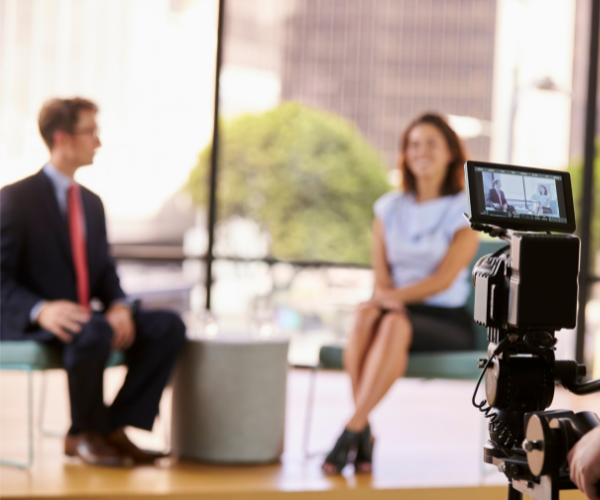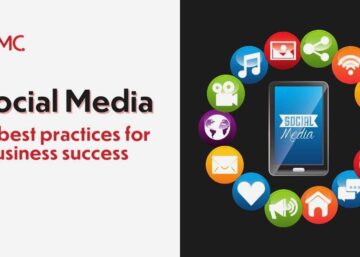Being interviewed by a news journalist can be daunting if you have never faced the media before. It’s a skill that is best developed by learning from experience, but if you’re about to step in front of the mic or camera for the first time, here are a few media interview best practice tips to get you started.
Be on time
No one likes to be kept waiting – and journalists working to tight deadlines are no different. If you are late turning up for a face-to-face media interview, or aren’t available for a phone/Skype interview at the agreed time, there’s a chance that the journalist may not wait around and the interview will be cancelled. For face-to-face interviews, arriving early can often give you the chance to build a rapport with the journalist before the interview – that will help when the interview begins.
Turn off your phone
Nothing annoys journalists (especially those in broadcast media) more than an interview being interrupted because of a phone call or text. Even if your phone is on silent, if the vibrate function is left on that can still make a noise or just be distracting for you and the journalist. Turning your phone off is the best option.
Make sure you are briefed on the subject and the likely line of questioning
Think of the questions the journalist is likely to ask and draw up some bullet points with the key messages you wish to get across. In most situations, it’s not necessary (or desirable) to read a rehearsed statement word for word (the exception to this rule is generally when there are important legal issues to consider, such as a statement after the conclusion of a civil or criminal court case). In most scenarios it’s best to remember key messages, but to put them into your own words as they flow naturally in response to the question. Reading a rehearsed statement word for word will usually sound awkward unnatural and unconvincing.
For audio-only interviews, make a few bullet point notes on your laptop that you can refer to in the interview. If you need to print the notes, keep it on one side of paper or, better still, on card to avoid paper rustling.
Stay on message
Before the interview, the subject matter should have been established. During a recorded media interview if the journalist introduces subjects you do not wish to discuss, have not been agreed beforehand, or that you cannot answer off the top of your head, then in most scenarios it’s OK to say so. Even in a live interview it’s usually better to politely decline to answer a question that you don’t know the answer to than it is to give an answer on the spur of the moment that you may regret later.
Facts and stats
Facts and stats can sometimes help to emphasise a particular point. However, unless you know that the target audience will have specialist knowledge to understand complicated figures, keep facts simple and straightforward so they can be easily understood. For example, if an interviewee wants to refer to an area of land in reference to a particular development, relatively few people will immediately be able to grasp the scale if it is expressed in acres or square metres. But if that area is expressed as being equal to X number of football pitches, then it’s more likely to be understood.
There are too many specific examples to list here because the type of facts and stats will vary depending on the specialist area of expertise you are talking about – but, hopefully, the example above will give you some food for thought when considering how to convey facts and stats clearly and concisely.
Treat every microphone and camera with appropriate caution
It’s comparatively rare, but there are occasions when interviewees have been caught out saying something they regret just because they assumed a mic or camera was switched off, or they thought it was too far away to pick up their voice, or the environment was too noisy for the mic to capture what they’re saying. Modern audio equipment is incredibly sensitive – just think of examples in recent years to understand how easy it is to get caught out making ‘off the record’ comments which are recorded and make news headlines. Former UK Prime Minister David Cameron was caught out talking about a confidential conversation with The Queen – and Sainsbury’s CEO Mike Coupe no doubt still has nightmares about his rendition of ‘We’re in the money’ when he thought the cameras were off just before he was being interviewed on ITV.
It’s wise to treat all cameras and microphones as if they are live. Pre and post interview, be aware of what you are saying, and to whom you are saying it. It’s also worth remembering that anyone with a smartphone can be a source of news, not only journalists. Also be aware of carrying confidential documents if you are likely to be photographed – modern DSLR cameras can take photos that show fine print from many metres away, as in these examples.
Don’t be scared!
The last point above might make you nervous and suspicious about the journalists you will meet. But please, as they used to say on Crimewatch, don’t have nightmares. Most journalists aren’t out to trick anyone into saying something that they didn’t mean to say. Of course, there are always exceptions to this rule, just as there are in any other walk of life.
If you are a CEO talking to national or international media then, yes, being well-trained to cope with the intense of ‘grilling’ that journalists often give to business leaders and politicians is a must. Dealing with intense media scrutiny comes with the job. But at a local level that type of aggressive media approach is less common. It’s also worth remembering that journalists from reputable news organisations that operate in regulated jurisdictions are obliged to work to codes of conduct set by their employers and the media industry – and they are subject to laws that apply to news coverage.
It’s common to hear people saying that the news media can print or broadcast ‘lies’ without any fear of consequences, but that’s not the case in most countries. Journalists who use unscrupulous, dishonest or illegal methods – or who publish material which is actionable under civil or criminal law – can face serious consequences such as disciplinary action from their employer, sanctions by media regulatory bodies, or legal proceedings against the journalist and/or their employer.
In the UK, it’s also worth remembering that the legacy of the Leveson Inquiry into press standards, and the Met Police’s Operation Weeting investigation into phone-hacking, linger on. Operation Weeting led to many journalists being arrested, and some jailed. There have also been a number of civil legal cases resulting from the News of the World phone hacking scandal which have resulted in big compensation payouts by media companies. All of that has sent out a warning to the UK media that there are serious risks involved for those who bend or break the rules.
If you’re being interviewed by a reputable media channel in a regulated jurisdiction, the journalist you are speaking to will know that you and your business have the right of redress (in terms of broadcasting or publishing corrections or apologies, complaining to media regulators, or legal action) if they broadcast something that’s untrue, misleading, or breaks the law.
The bottom line:
- If you prepare properly for interviews, follow our media interview best practice tips, and answer questions in a professional manner, more often than not it will result in fair and balanced news coverage that will allow you to get your message across to the target audience.
For further guidance or support on how to prepare for media interviews, get in touch with the MMC team at [email protected].




